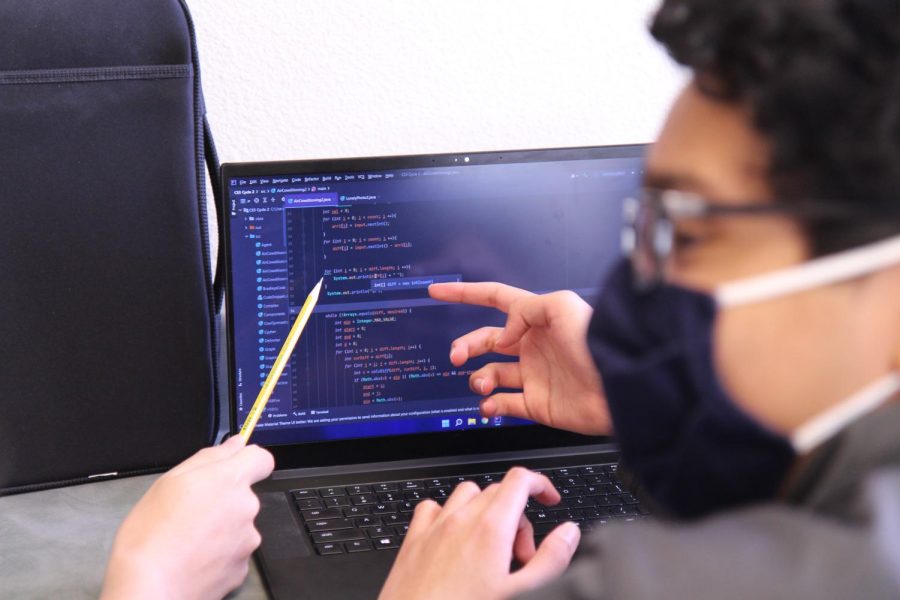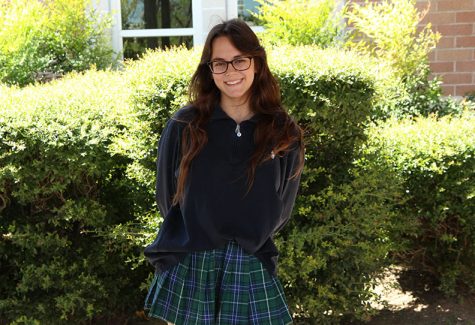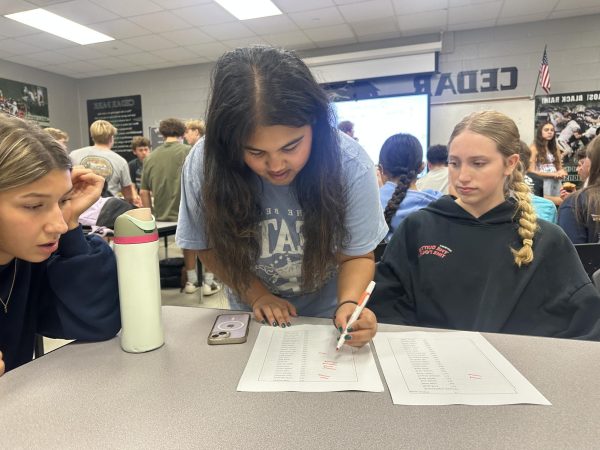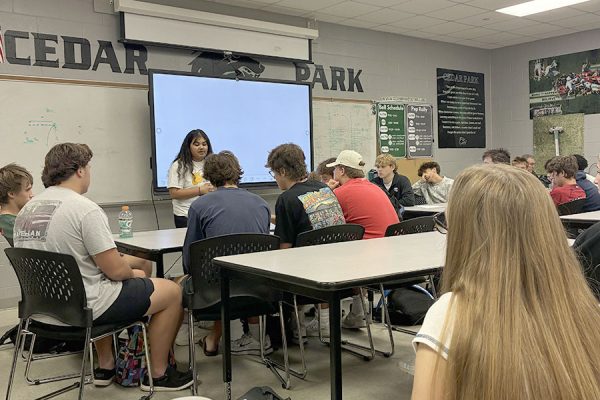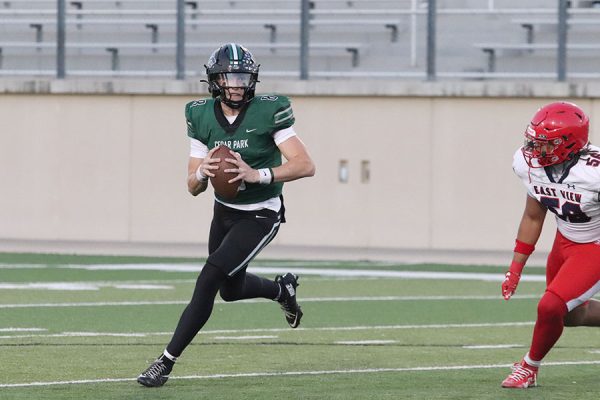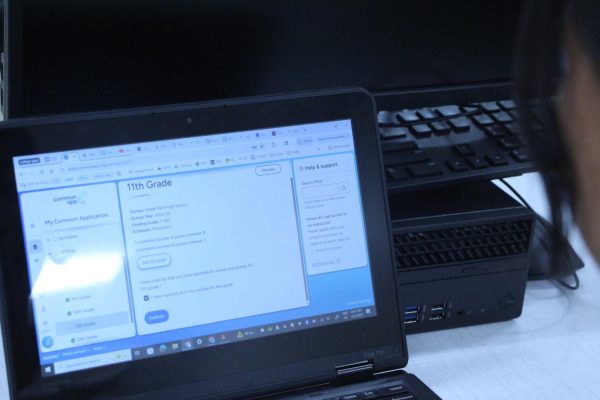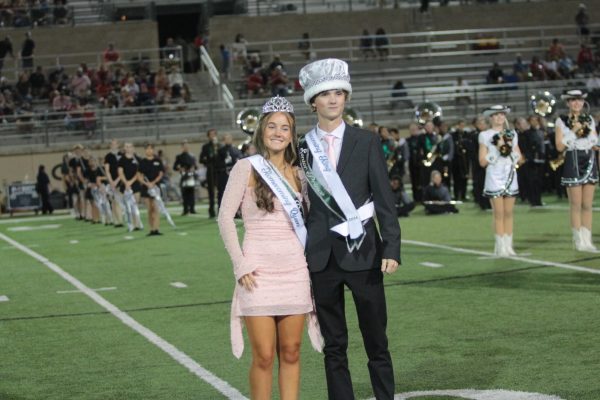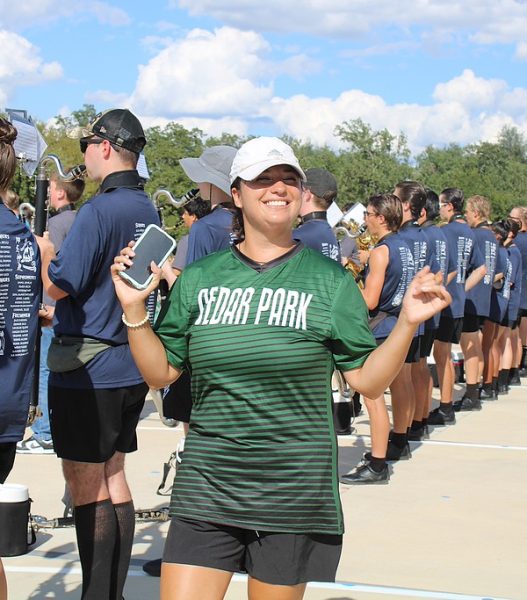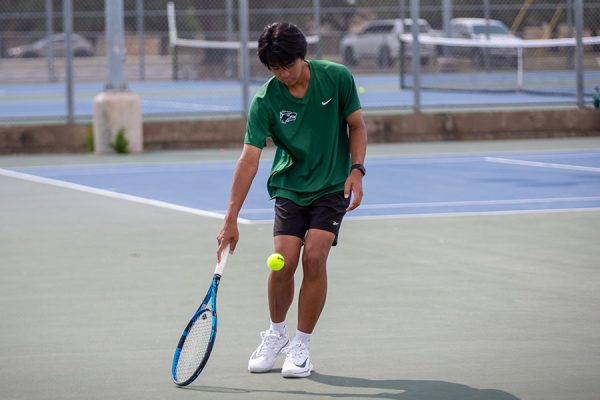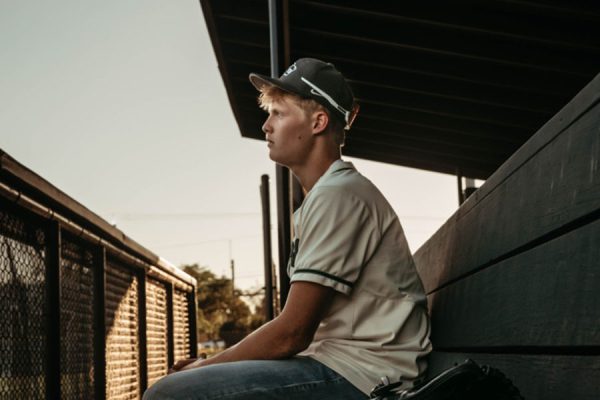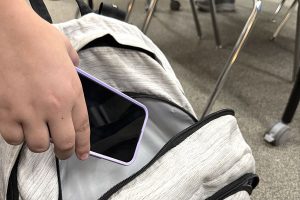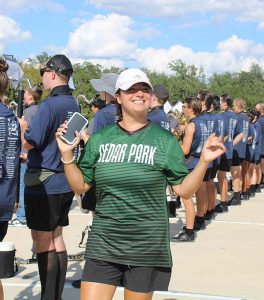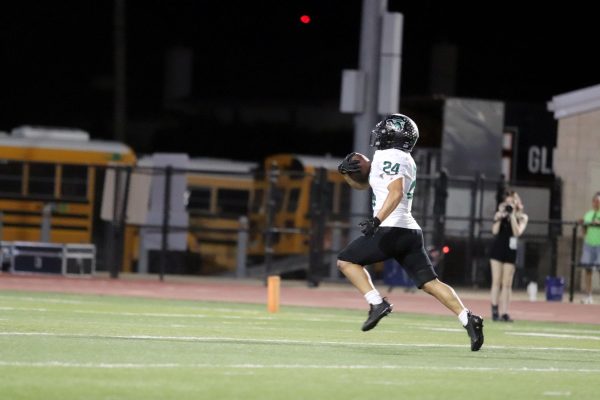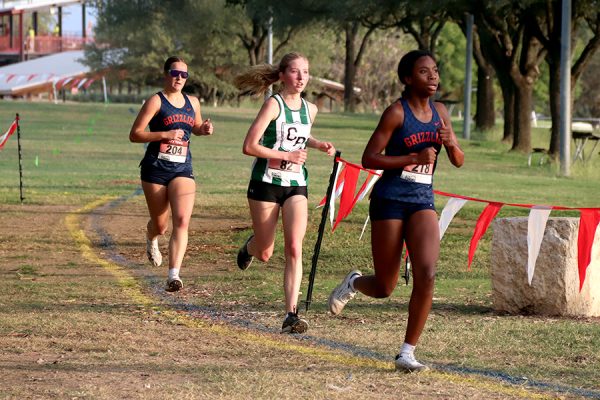Breaking and Entering
Cybersecurity Club Speaks About Accomplishments, Future Plans
Competing at the UIL Burnet meet on Jan. 15, junior Alex Thummalapalli talks with his partner during the computer science competition. In addition to his involvement in computer science, Thummalapalli is a member of the cybersecurity club, where they compete in Capture the Flag, or CTF, events. “I’ve always been interested in computer science, but the cybersecurity club was a new and interesting opportunity for me this year,” Thummalapalli said. “It’s a lot more about problem solving and thinking your way through difficult prompts. I’m on a team with some friends and we compete in CTF competitions where you have to try to break into networks, interpret data and perform other cool ‘computer tasks.’ It’s a lot of fun, and I know there’s many more competitions coming up.”
January 19, 2022
Web exploitation, cryptography, reverse engineering and forensics. Endless programs utilized to decrypt hidden data or trick a computer system into revealing its own password. An endless network of digital code and evading traps. This is just another day in the life of a cybersecurity club member.
Formed last year by junior John Matistic, the cybersecurity club competes in local and global competitions, such as Capture the Flag, or CTF. Teams compete in these events where there is a machine with a hidden digital file or line of text that competitors must find to win.
“My favorite part [about cybersecurity competitions] is the difficulty they can get to, because it can be as simple as just ‘run a program,’ or it could be extremely difficult and takes you multiple days to figure out exactly what is going on and where you’re supposed to be looking,” Matistic said. “I like how extremely easy it is for newcomers, but also how it can be as hard as real life situations of what people are trying to find.”
On Dec. 3, two cybersecurity teams competed in MetaCTF in the event “jeopardy style,” where each team chose challenges from different categories for certain amounts of points, and the team with the most points at the end wins. The event lasted 48 hours, and pitted Cedar Park teams against high schools and colleges around the world. Two advanced teams consisting of Matistic, senior Sergio Yazdi, and juniors Will DeDominico, Ian Morris, Mikail Sadic, Zach Dorney, Alex Thummalapalli and Eshan Bharadwaj, placed in the top 50 schools.
“It was really exciting because we went into it not expecting to win much, but we ended up doing much better than we thought,” Matistic said. “Seeing that during the competition pushed us to do more questions and a couple of us would stay up really late trying to solve more and keep our spot in the top 50. We went against colleges like Texas A&M, Thomas Jefferson High School and Microsoft, so that was pretty cool.”
Their next competition, called Real World CTF, is Jan. 21 and will last 48 hours. The event is similar to jeopardy style, but unlike other competitions, there is no limit to how many teammates a group has.
“I feel confident we will place high, [because] we have a lot of talented people competing,” DeDominico said. “Our team has been practicing problems on another CTF website, picoCTF, which has practice problems that are very well made and what you would find in these competitions.”
Currently, the club has around 15 members. They meet Tuesdays after school in Room 2103 to strategize and compete in competitions together.
“I began working on cybersecurity when lockdown from COVID-19 first started, mostly because I was bored,” Yazdi said. “Competing in CTFs with other team members is probably one of my favorite things to do that CPHS offers because not only do you feel like you’re not the only weirdo who likes breaking computers, but the other weirdos you’re working with help out a lot with creating an attack method. Working with my CTF team members helps me get unstuck from a difficult problem faster and creates more hype behind the answer so you get that adrenaline rush of getting the problem right, and you keep trucking through.”
Matistic began with programming and then switched to cybersecurity last year. This year, he also enrolled in digital forensics to pursue his interests in cybersecurity.
“I honestly have just liked [cybersecurity] from the start because of how much fun it is,” Matistic said. “I’ve loved to mess around with computers for most of my life, but I didn’t really have as much fun with things like computer science as I did with cybersecurity. I initially got interested in it from my dad because he works in the field, and then I decided to take the digital forensics class from there, which obviously inevitably led to me making the CTF club.”
In the future, the teams might visit a local exposition, or technology events, where attendees get to see the latest and greatest in hacking tech and complete a bunch of challenges.
“Going to an actual technology event would be game changing because we would get to see how the skills we’re learning apply to the real world and what we can expect in the near future,” Yazdi said.
Next year, the digital forensics course will make its debut, where it will offer material similar to cybersecurity for students to learn.
“We have a digital forensics course that we’re really excited to offer and something that’s relatively new,” computer science teacher and cybersecurity club sponsor Christopher Oliver said. “Digital forensics has really close ties with cybersecurity, so a lot of the content is similar. This is a program we’re really excited to be bringing online. Often the barrier of entry is quite high [in cybersecurity], so having a space where you can come and learn the basics I think would be really valuable. We certainly have some pretty strong competitors, but at the meetings I know they go out of their way to welcome them and make it approachable if you haven’t got the experience.”
The club is looking for students in computer science or those with a general interest in cybersecurity.
“It’s just great because cybersecurity is needing a lot of people in the field because it’s been really lacking,” Matistic said. “Computer science is getting more saturated as everybody graduates, but cybersecurity is still lacking and every company needs it, so just more interest in it is great.”



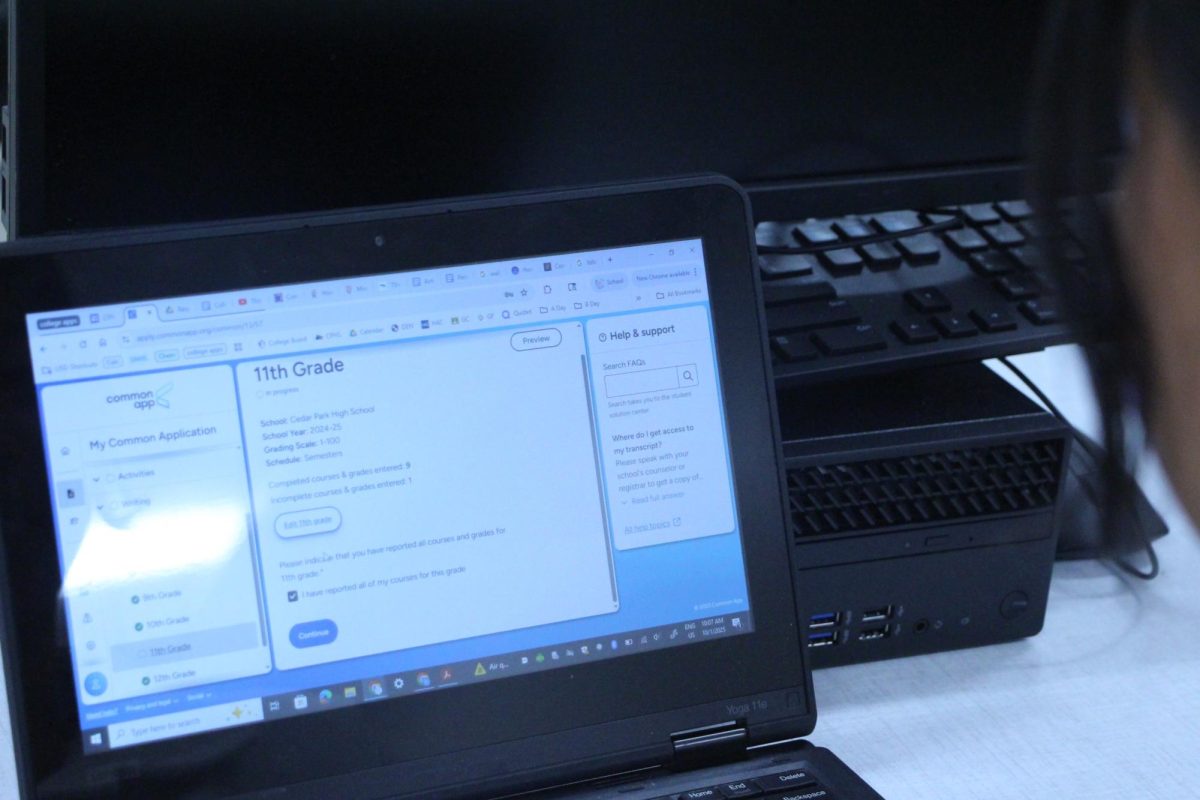
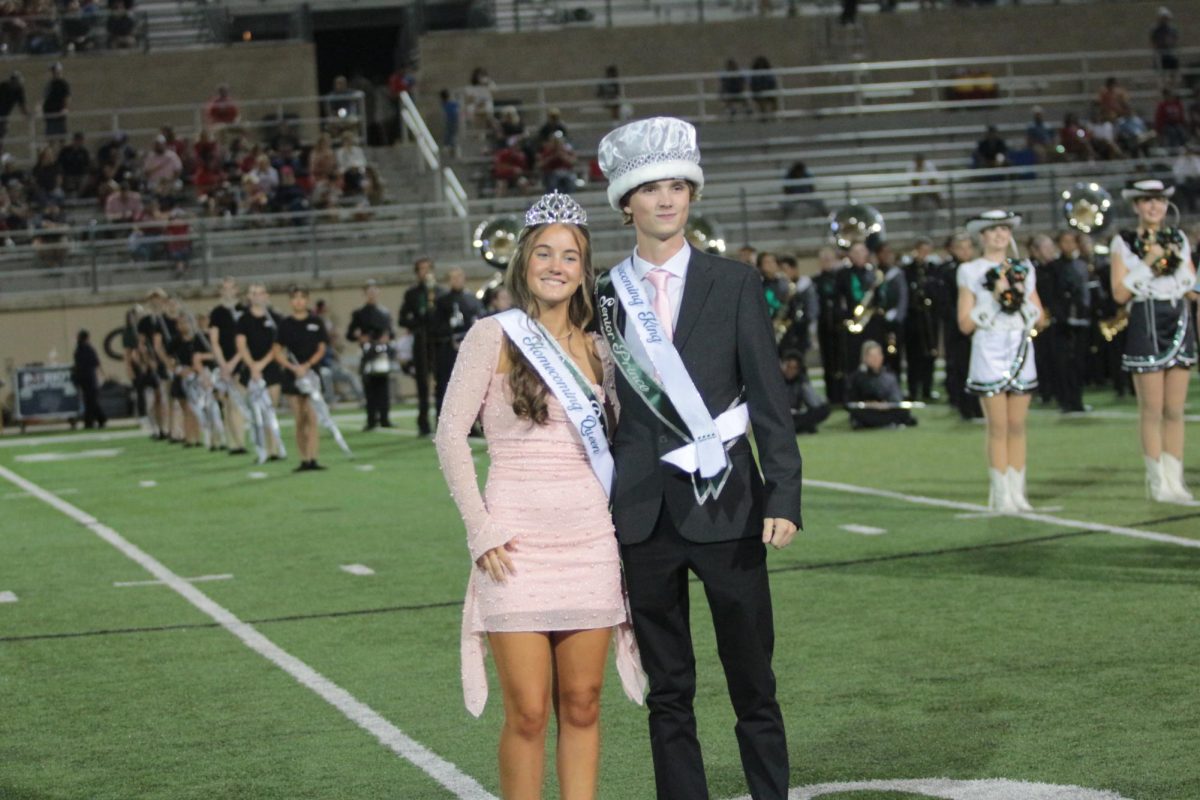





![Broadcast, yearbook and newspaper combined for 66 Interscholastic League Press Conference awards this year. Yearbook won 43, newspaper won 14 and broadcast took home nine. “I think [the ILPC awards] are a great way to give the kids some acknowledgement for all of their hard work,” newspaper and yearbook adviser Paige Hert said. “They typically spend the year covering everyone else’s big moments, so it’s really cool for them to be celebrated so many times and in so many different ways.”](https://cphswolfpack.com/wp-content/uploads/2025/05/edited-ILPC.jpg)



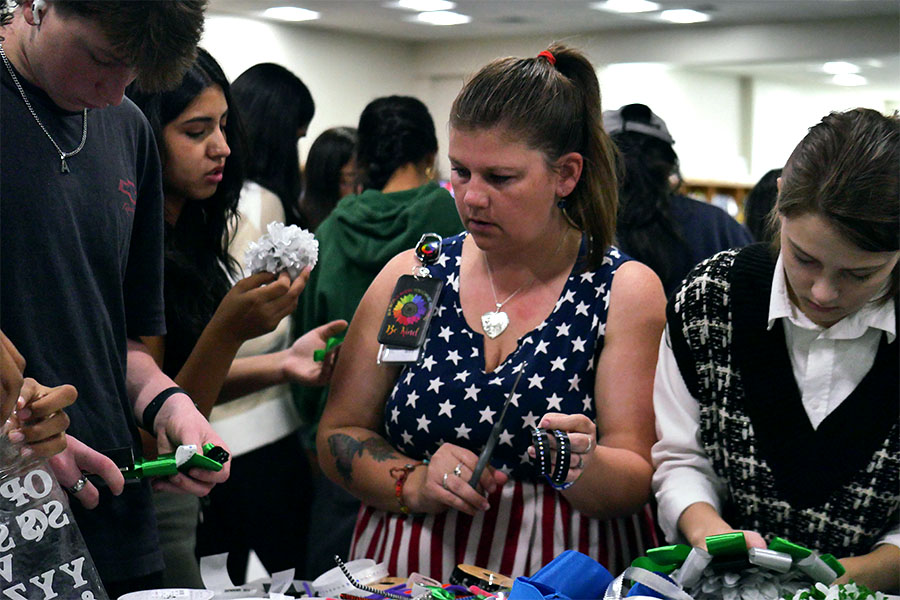

![Looking down at his racket, junior Hasun Nguyen hits the green tennis ball. Hasun has played tennis since he was 9 years old, and he is on the varsity team. "I feel like it’s not really appreciated in America as much, but [tennis] is a really competitive and mentally challenging sport,” Nguyen said. “I’m really level-headed and can keep my cool during a match, and that helps me play a bit better under pressure.” Photo by Kyra Cox](https://cphswolfpack.com/wp-content/uploads/2025/09/hasun.jpg)

![Bringing her arm over her head and taking a quick breath, junior Lauren Lucas swims the final laps of the 500 freestyle at the regionals swimming competition on date. Lucas broke the school’s 18-year-old record for the 500 freestyle at regionals and again at state with a time of 4:58.63. “I’d had my eye on that 500 record since my freshman year, so I was really excited to see if I could get it at regionals or districts,” Lucas said. “ State is always a really fun experience and medaling for the first time was really great. It was a very very tight race, [so] I was a bit surprised [that I medaled]. [There were] a lot of fast girls at the meet in general, [and] it was like a dogfight back and forth, back and forth.” Photo by Kaydence Wilkinson](https://cphswolfpack.com/wp-content/uploads/2025/03/Kaydence-2.7-23-edit-2.jpg)
![As her hair blows in the wind, senior Brianna Grandow runs the varsity girls 5K at the cross country district meet last Thursday. Grandow finished fourth in the event and led the varsity girls to regionals with a third place placement as a team. “I’m very excited [to go to regionals],” Grandow said. “I’m excited to race in Corpus Christi, and we get to go to the beach, so that’s really awesome.” Photo by Addison Bruce](https://cphswolfpack.com/wp-content/uploads/2025/10/brianna.jpg)











